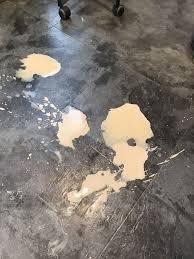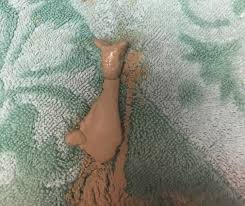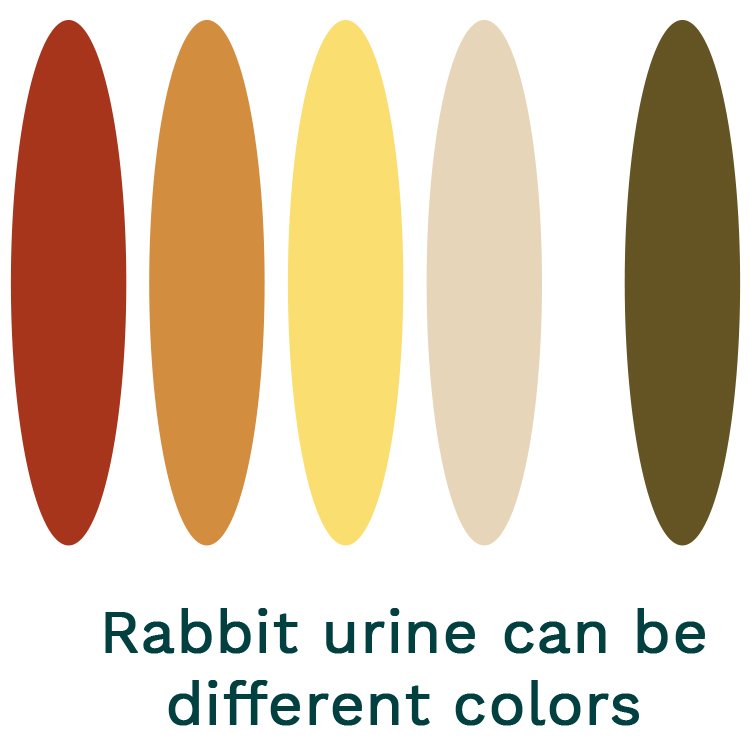The Scoop on Pee
Normal urine should be transparent.
When dry, urine can leave a chalky outline caused by excess calcium in the diet. Unlike most animals, rabbits eliminate excess calcium through their urine instead of expelling it through their bowels. The more calcium in a rabbit’s diet, the more calcium they will excrete.
Excessive calcium levels in the urine can lead to "sludge" which can cause infection or contribute to the formation of kidney/bladder stones.
Gritty, pasty, powdery urine or the presence of small sandy-looking stones is commonly called “sludge.” The two best ways to help prevent sludge and stones are limiting the amount of higher calcium foods and ensuring your rabbit is very well hydrated. A dehydrated rabbit’s urine will appear dark and/or be strong-smelling. Blood in the urine could be an indication of an infection or trauma. Spray with hydrogen peroxide and it will bubble if it is blood; if blood, your rabbit must go to the vet.
For cleaning, distilled white vinegar has a pH level opposite of rabbit urine and helps eliminate urine smells left behind in the litter box.





